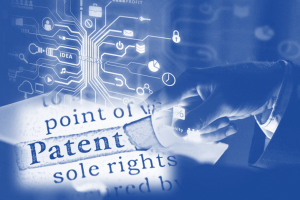New research project at MIPLM: Motivation and remuneration of digital inventions
The central question of this research project is: How do digital inventions come about? Under the keyword Industry 4.0, digital transformation is taking place across industry borders in business and this makes the ability to patent digital inventions a key competence in competition. But until it comes to the point where the patent department can work on a digital invention disclosure, there are a few steps that have to be taken. In the case of classical technology issues and engineers as inventors, those are industry-wide, in part legally regulated, common patterns of action. For digital experts who are working on software-based solutions, these processes, tools and courses of action with corporate inventions are far less common practice.
A study by the German Institute for Inventions (Deutsches Institut für Erfindungswesen) on the role of IP in Industry 4.0 comes to the conclusion after conducting interviews with technology directors, CTOs and technical managers of large medium-sized companies from the manufacturing Industry, that digital experts such as data scientists, online marketing managers and software engineers, app developer or cloud specialists are less likely to recognize inventive contributions and write invention disclosures in their work than engineers in the classical technical disciplines. This seems to have various causes, which are examined in the context of this research project.
First, digital inventors seem to have little awareness of their own inventive work and are very poorly informed about the possibilities of patenting digital solutions, such as apps or business models. Above all, the misconception “software cannot be patented” seems to be very widespread. The legal basis of software protection, namely the exception of “software as such” and the underlying concept, is hardly understood. The extensive patent activities, especially in digital and software-related industries or such companies, are hardly known to digital experts. Current jurisprudence such as that of the Munich Regional Court in the event of infringement of digital patents by Facebook and WhatsApp is also relatively unknown.
In addition, there appear to be aftereffects of an older discussion from the early 2000s about software patents and the question of whether software in general should be accessible to patent protection at all. There is also a misunderstanding of the interaction between patents and open source approaches. Because ultimately one can only make something available when the property rights have been clarified. For example, many Linux companies operate the Open Invention Network (OIN), a patent pool that is intended to ensure that Linux solutions remain free from third-party rights and that is why it holds Linux-relevant patents. The big tech and patent player like IBM, Sony, Google or Philips are a part of OIN and Huawei just joined this patent pool.
The current research project deals with questions about the inventive results of digital experts. On the one hand, the obstacles should be examined, on the other hand, the motivational factors. This includes the possibilities of designing invention reports for digital inventions and the appropriate remuneration, especially within the framework of the statutory employee invention law and the guidelines for remuneration for the inventive performance of digital experts.
This research project is funded by the graduate school of the Rudolf Diesel Medal, the oldest general innovation award in Germany. The graduate school is under the patronage of the board of trustees deans Thomas Böck, CEO Claas KGaA mbH, Dr. h.c. Oliver Jung CEO Festo AG & Co KG, Dr. Stefan Kampmann CTO Osram AG, Anke Kleinschmit Chief Development Officer Andreas Stihl AG & Co KG, Thomas Ricker Chief Executive Officer Krones AG, Dr. Walter Stadlbauer CTO / COO Schüco International KG and Dr.-Ing. Thomas Steffen, Managing Director Research & Development Rittal GmbH & Co KG. The dean’s office presides over the board of trustees of the Rudolf Diesel Medal with over fifty technology directors from major German medium-sized companies. The graduate school of the Rudolf Diesel Medal is accompanied by the mentoring program of experienced heads of industrial IP departments.



